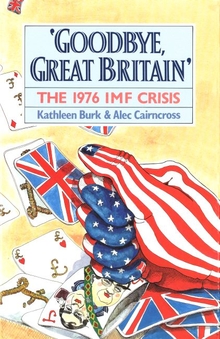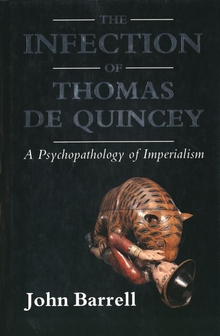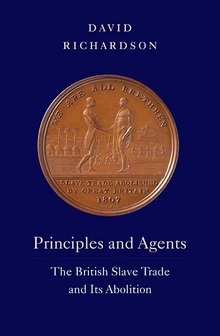Goodbye, Great Britain
WARNING
You are viewing an older version of the Yalebooks website. Please visit out new website with more updated information and a better user experience: https://www.yalebooks.com
The 1976 IMF Crisis
Kathleen Burk and Alec Cairncross
"There are very few moments in post-war British history to which the cliché of a 'benchmark' can be applied with total certainty. The currency crisis of the autumn of 1976 was without doubt one of them."—Peter Hennessy
"This fascinating new study uncovers the detail of one of the most traumatic economic and political crises of British 20th century history. . . .The whole book is highly relevant background to the problems facing the government in running Britain's inflation-prone economy."—Banking World
"This scholarly but readable book is an important contribution to the study of economic policy."—George Peden, Book Review Digest
"Using private papers and diaries, interviews, and published materials, they provide not only a fascinating detailed narrative of the crisis and its resolution but also a somewhat detached, backward-looking assessment of the forces at work. . . . One of the best studies of its kind, it will find use in many courses, particularly those with a political economy slant."—D.E. Moggridge, Choice
"A model of how good contemporary history can be written in the absence of Cabinet and private papers. . . . So thorough that it seems unlikely that it will require significant revision when the Cabinet papers appear in 14 years time. . . . One of the best short analyses available of post-war economic policy, and it is written in easily comprehensible and non-technical language. . . . Indispensable not only to the serious student of contemporary history, but to anyone who seeks to understand modern Britain."—Vernon Bogdanor, Contemporary Record
"This book will remain indispensable for its treatment of the economic troubles of the 1970's and the financial context for Thatcherism."—Philip Williamson, Economic History Review
"A timely and exceptionally interesting book. . . . [Dr. Burk] probably has a better feel for the details of the IMF intervention than anyone; Sir Alec Cairncross writes with the authority one would expect from someone who is not only a distinguished academic economist but a former civil servant who knows the Treasury's little ways. . . . informative and incisive."—Ross McKibbin, London Review of Books
"[A] brilliantly clear and concise examination. . . . Kathleen Burk and Sir Alec Cairncross map out every contour of the contemporary debate, and skillfully weigh the consequences."—Ben Pimlott, New Statesman & Society
"Compelling."—Peter Oppenheimer, Observer
"This definitive account of the 1976 sterling crisis is not only fascinating in itself: it is essential background to the problems now facing either party in running Britain's inflation-prone economy."—William Keegan, Economics Editor, Observer
"The most complete account yet of the 'high politics' of the IMF crisis."—Steve Ludlam, Political Studies
Publication Date: March 25, 1992









